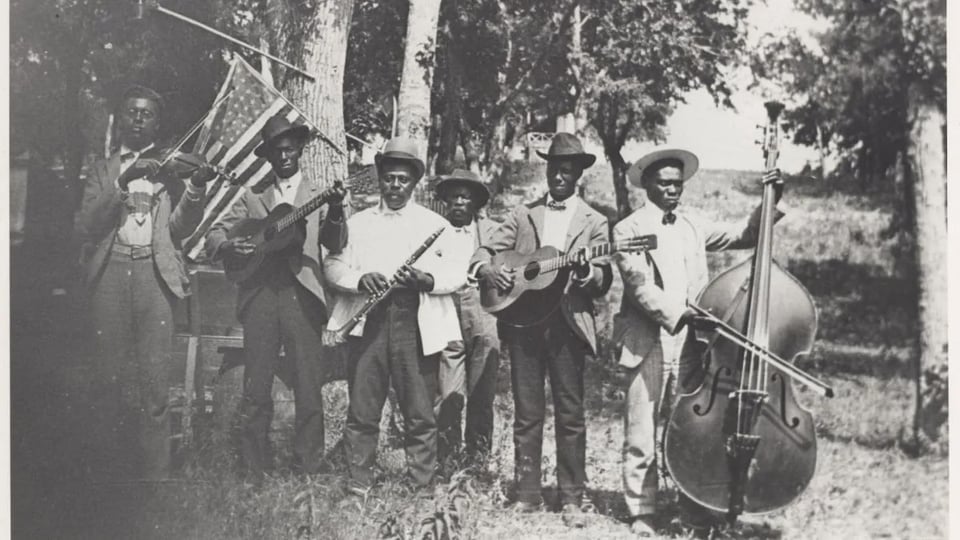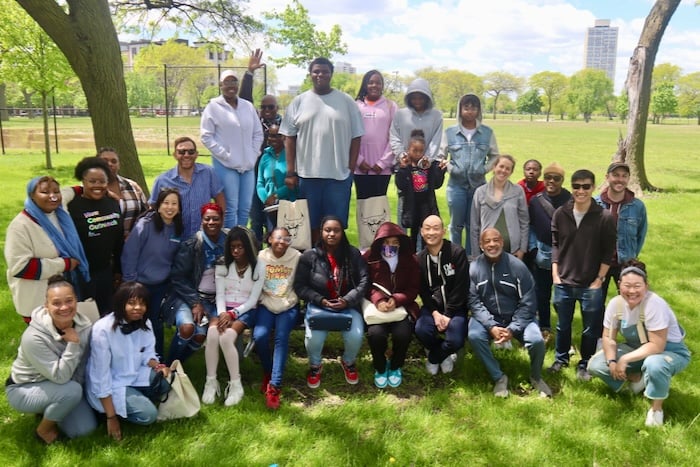Juneteenth and Worship
Why and how to include Juneteenth themes in corporate worship

I can’t remember when I first learned about Juneteenth, the commemoration honoring the day news of the Emancipation Proclamation finally reached Galveston, Texas in June 19, 1865, a year and a half after the fact. But as I began reading about the day word of freedom finally arrived to enslaved Texans along with the different ways African American citizens in Texas and beyond remembered their emancipation each June 19th, the implications for Christian discipleship and worship started to make themselves apparent.
For the past handful of years, our church has incorporated some of the theological themes embedded in Juneteenth into corporate worship on the Sunday before June 19th. (The fact that this coincides with Fathers’ Day hasn’t seemed to bother most of our dads. Thanks guys!) Since then, I’ve been on a mission to get more churches to recognize this Sunday as a way to honor God’s faithfulness to his enslaved children and to apply some of the notes of our Christian faith to contemporary battles against injustice.
With that in mind, here are some of the connections between Juneteenth and Christian discipleship I’ve noticed. I’ll also share a few of the ways our church has incorporated these themes over the past few years. If you’re a pastor or ministry leader, maybe our experiences could be an entry to your own contextually appropriate ways of honoring this day, those it celebrates, and the God who is faithful in even the most terrible of circumstances.
The first discipleship connection Juneteenth provides is the way this history exemplifies the difference between what is legal and what is just. Slavery was legal for hundreds of years in this country and plenty of white Christians appealed to that legality as a way to argue that it was also just. But the history of enslaved women and men, enduring the horrors of captivity while planning their emancipation, reveals the lie that legality is always justice. For a vision of true justice, justice which sometimes leans against the legal status quo, the Christian will always begin with the God who is righteous and just.
Juneteenth also illustrates the forces working to obscure or deny our freedom. “For freedom Christ has set us free,” writes Paul in Galatians 5:1. Yet most of that letter has to do with the many forms of opposition that come against that freedom. The anti-Christ forms of captivity remain active, even as their demise is assured. Christians will remain alert to the lurking presence of captivity in our world and, by the Holy Spirit’s presence and power, resist the false-freedoms which only lead back to captivity.
This final connection is the one I think about most regularly. Imagine the women and men toiling in bondage in Texas after the Emancipation Proclamation. They had been made legally free but the news of their liberty was purposefully, devilishly kept from them. This seems to me a picture of much of our discipleship to Jesus. Though often surrounded by evidence of cruelty and captivity, we are the people who live the truth of our freedom even when word of that freedom seems not to have reached our moment, our circumstance, our community.
We could add other theological connections to these three, but I’m sure you’re already making your own. Our church has found a few simple ways to incorporate these themes into corporate worship. This begins with situating the holiday, and what it commemorates, for the congregation. We’ve done this as a children’s teaching during the service or a reflection in our church newsletter the week before. Other times, I’ve simply introduced my sermon with some quick historical background. Your context will dictate how much of the backstory you provide, but you’ll want to be assured that those in the church share a common starting point.
Music is another way to weave Juneteenth themes throughout the service. Highlighting God’s faithfulness in struggle and suffering, God’s dedication to our holistic freedom, our commitment to follow Jesus even when hope seems beyond our grasp– these are the sorts of truths Juneteenth makes very personal. Historically, African American congregations would include James Weldon Johnson’s “Lift Every Voice and Sing” during Juneteenth services and our multiracial congregation does the same.
Reading about the early Juneteenth worship services reveals that the preacher would often take for their text a passage like Galatians 5:1 or John 8:36, “So if the Son makes you free, you will be free indeed.” I’ve followed their examples by choosing a passage which explicitly lifts up freedom as an expression of God’s love for his people. Some of the passages I’ve preached from over the years include Romans 6:20-23 (“Free From the Inside Out”), Jeremiah 34:8-22 (“Proclaiming Freedom”), and 2 Corinthians 3:17 (“There is Freedom”). While there’s room for lament in a Juneteenth service, I’m personally inclined to turn the volume up on celebration, an instinct which seems to resonate with the historical observances I’ve read about.
Finally, many of the original Juneteenth commemorations included parades and cookouts. These public observances – outside the relative safety of Black churches – were a bold and potentially risky declaration of a people’s inherent dignity and God-given freedom. Finding a way to spill from the sanctuary, perhaps gathered around food, is another way a congregation could harmonize with those who first observed Juneteenth. It’s also a reminder that the Christian dedication to freedom is meant to be lived publicly.
You’re probably already thinking of other creative ways to incorporate this holiday, its meaning, and theological connections into your worship service. For more ideas, I’ve found the following resources to be helpful:
A Juneteenth digital toolkit curated by The National Museum of African American History
A guide to celebrating Juneteenth from PBS
Worship and prayer resources from the Calvin Institute of Christian Worship
Worship resources from the African American Lectionary
On Juneteenth by Annette Gordon-Reed
The best history of Juneteenth I know of can be found in a chapter of Lone Star Pasts: Memory and History in Texas.
If you have experience incorporating Juneteenth into a worship service, I’d love to know how you do it. And if you’re planning to do so next month, I’d love to know about that too!
The View From Here / Race Against Gun Violence

On Saturday we celebrated another school-year of our non-profit organization’s restorative justice programming in three local high schools in Bronzeville. These are some of the 140 students (and mentors and staff) who’ve shown up each week to nurture relationships and community. In spite of the traumatic situations many of our students navigate, these young women and men are leaning into all of the important and healthy things for really hopeful futures. I’m so grateful for them!
Thanks to those who’ve given toward my goal for the Race Against Gun Violence. All your support goes to make more of this kind of restorative justice programing possible. If you’ve not already, would you consider giving? Thanks!